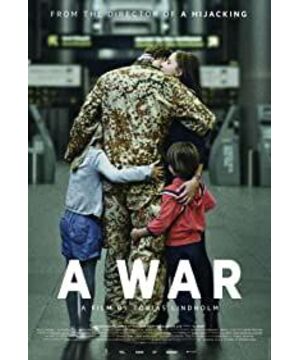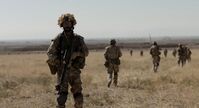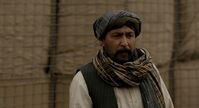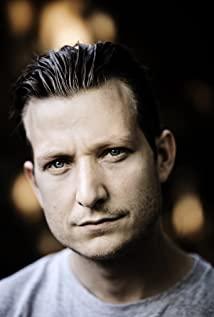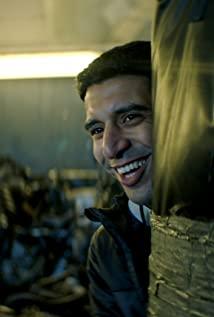The cruelty of war is that it will make people face inescapable moral dilemmas anytime and anywhere, and put people in such a dilemma.
As a company commander of the Danish army stationed in Afghanistan, the protagonist in the film has experienced such dilemmas and choices three times.
The first time was when a family of four locals who had received the help of the coalition forces were threatened by death by the Taliban and entered the military camp to seek asylum. The protagonist refused their request. The film did not explain the reason for this, but he was in the association: the rule that local civilians are not allowed to stay in the war zone camp (or the practice, from the film’s view of the binding force does not seem to be strong) gave him a reason to choose, let the rules come. To guide his own behavior, the protagonist hopes to reduce the sense of self-guilt once he chooses wrong by this way of handing everything over to the rules. I am afraid that there is also subconscious distrust of the local people (worried that they have already taken refuge in the Taliban and destroyed them in the military camp?). At the same time, there is a fluke mentality, thinking that even if he goes to rescue the next day, it will be too late. The combined effect of the above-mentioned multiple ideas facilitated the protagonist to make a choice.
However, the facts shattered the possible fluke: a family of four was killed. This scene not only brought a strong psychological impact to the protagonist, but also questioned the reason for his first choice: acting according to the rules will eventually cause such consequences. It also laid the groundwork for the second choice that followed irrespective of the rules.
The second predicament occurred during a military operation. The firepower of one's own side was completely suppressed, and a subordinate was shot dead and needed rescue. Only by calling air support can he escape the danger. When the battlefield situation cannot be effectively observed, the protagonist has made a choice regardless of the rules: regardless of whether it may cause civilian casualties, he insists on requesting air support and does not hesitate to deceive. At this time, the protagonist has learned the "lesson" of the first choice: put the rules and possible problems aside, and save the person in front of him first. The fluke still exists: thinking that civilians have been evacuated from the battlefield. The results of the investigation of the village before the military operation (the village is extremely quiet and the civilians are predicted to have been evacuated) undoubtedly added weight to this choice.
The airstrike successfully wiped out the enemy and the soldier who was shot was rescued. Everything seemed to be perfect. However, this was just a joke made by fate and the owner: a subsequent investigation revealed that the airstrike killed 11 civilians, and the on-site audio record confirmed the protagonist. The situation of the civilians is not confirmed under military law, so they must be repatriated and face trial. At this point, the psychological basis of the protagonist's two choices has been subverted: whether or not to act according to the rules, it will eventually cause serious consequences. Judging from his numbness or calmness at the moment, it seems that this is also a relief, at least not having to stay on the battlefield at any time to face moral dilemmas and dilemmas. I believe that he is also ready to accept sanctions, hoping to reduce the guilt of hurting others due to his two choices.
However, after returning to China, the wife’s words once again brought the protagonist into a difficult situation: “You may have killed eight children, but there are three alive!” If you refuse to plead guilty, you will certainly have a chance to escape the sanctions. What will come will be the psychological burden of endless self-blame and guilt; if you accept sanctions and be an honest person who dares to act, it means that in the years to come, you will not be able to treat your wife, children, and The whole family has fulfilled its long-deserved responsibility, and the hardships of the wife raising three children alone in the first half of the film further exaggerated the importance of this responsibility. The trauma caused by the war was so persistent that he wanted to confess his guilt and atonement, so he had to accept the arrangement of the lawyer and set his acquittal as the goal. In the face of the prosecution lawyer's aggressive questioning at the court trial, the protagonist's self-defense also includes the emotional catharsis of helplessness, hesitation and guilt when facing difficulties and dilemmas.
In the end, the protagonist was acquitted and released. This ending is not so much a choice of its own, as it is the result of false testimony by the comrade-in-arms "butcher" in order to protect the protagonist at a critical moment. The protagonist’s solemn expression is in sharp contrast with the ecstatic performance of his comrades, and also reveals his ultimate fate: Although the physical prison has been escaped, the spiritual cruel punishment has just begun. The family of four killed by the Taliban, the eleven civilians who died in the airstrike, and the guilt of evading sanctions will become the spiritual shackles that accompany him throughout his life. From the moment of being involved in the war, all this is destined to be inevitable.
View more about A War reviews


